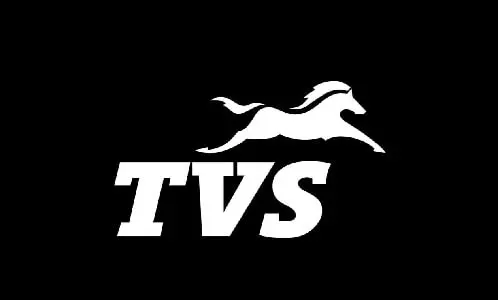TVS Motor Company is one of India’s most trusted and respected automobile brands, known for its innovation, reliability, and customer-centric approach. With a strong presence in the two-wheeler and three-wheeler markets, TVS has built a legacy of excellence. Owning a TVS dealership is a lucrative business opportunity, given the brand’s popularity and the consistent demand for two-wheelers in India.
If you’re considering becoming a TVS franchisee, this article will provide a detailed overview of the franchise cost, requirements, and other essential aspects to help you make an informed decision.
Why Choose a TVS Franchise?

The automobile industry in India is one of the fastest-growing sectors, with two-wheelers accounting for a significant share of the market. TVS is a prominent player, offering a wide range of products, including scooters, motorcycles, mopeds, and three-wheelers. Some key reasons to invest in a TVS dealership include:
- Brand Reputation: TVS is synonymous with trust, quality, and innovation, making it a preferred choice among Indian consumers.
- Wide Product Range: TVS caters to a broad customer base with products in multiple categories and price ranges.
- Strong Demand: With increasing urbanization and the need for personal mobility, the demand for two-wheelers is expected to rise steadily.
- Comprehensive Support: TVS provides extensive support to its franchisees in terms of training, marketing, and operational guidance.
TVS Franchise Cost in India
The total investment required to open a TVS dealership varies depending on factors such as location, dealership type, and infrastructure. Here’s a detailed breakdown:
1. Initial Investment
The initial investment for setting up a TVS dealership typically ranges between ₹50 lakh and ₹1 crore, depending on the scale and format of the dealership. This amount includes costs for securing the franchise rights, setting up infrastructure, and purchasing initial stock.
2. Infrastructure and Setup Costs
Establishing a TVS showroom and service center involves significant capital expenditure. The costs include:
- Showroom Space: A dealership requires a minimum area of 3,000 to 5,000 square feet to accommodate a display area, sales counters, and an office. The cost of acquiring or renting this space depends on the location.
- Service Center: An additional area of around 2,000 to 3,000 square feet is required for a fully equipped service center.
- Interior Design and Furnishings: ₹10 lakh to ₹20 lakh for branding, signage, and showroom interiors.
- Workshop Equipment: ₹10 lakh to ₹25 lakh for tools, machinery, and other service-related equipment.
3. Inventory and Stock
An initial stock of TVS two-wheelers is necessary to meet customer demand. The cost of purchasing inventory can range between ₹30 lakh and ₹50 lakh, depending on the dealership’s size and target market.
4. Operational Expenses
Franchisees must allocate funds for operational expenses, such as:
- Staff Salaries: ₹5 lakh to ₹10 lakh annually, depending on the number of employees.
- Utilities and Overheads: ₹1 lakh to ₹3 lakh monthly for electricity, water, and other utilities.
5. Franchise Fee
The franchise fee for a TVS dealership typically ranges between ₹10 lakh and ₹15 lakh, depending on the location and dealership size. This fee grants you the rights to operate under the TVS brand and access its proprietary systems and support.
Total Investment
Considering all costs, the total investment required to establish a TVS dealership ranges between ₹75 lakh and ₹2 crore, depending on the scale of operations and location.
Requirements to Open a TVS Dealership
TVS has specific eligibility criteria for potential franchisees. These include:
- Financial Stability: Applicants must demonstrate the financial capacity to invest the required capital and sustain operations during the initial phase.
- Prime Location: A dealership should be located in a high-visibility area with ample parking space to attract customers.
- Experience in Business: While prior experience in the automobile or retail industry is not mandatory, it is an added advantage.
- Commitment to Quality: TVS expects its franchisees to adhere to the company’s standards in customer service, product presentation, and operational efficiency.
Profitability and Return on Investment (ROI)
The profitability of a TVS dealership depends on factors such as sales volume, operational efficiency, and market demand. Here are some key points to consider:
-
Revenue Potential:
- A well-located TVS dealership can generate annual revenue ranging from ₹5 crore to ₹10 crore, depending on the market size and customer base.
- Revenue is derived from both vehicle sales and after-sales services.
-
Profit Margins:
- The profit margin on two-wheelers typically ranges between 3% and 5%.
- Higher margins can be earned through spare parts, accessories, and servicing.
-
Break-Even Period:
- Most TVS dealerships achieve break-even within 2 to 3 years, provided they are located in high-demand areas and managed efficiently.
-
After-Sales Revenue:
- Service centers contribute significantly to a dealership’s profitability, as they generate recurring revenue from repairs, maintenance, and spare parts sales.
Advantages of Owning a TVS Franchise
- Established Brand: Leverage TVS’s strong market presence and loyal customer base to build a successful business.
- Diverse Product Portfolio: Offer a wide range of two-wheelers catering to different customer segments.
- Training and Support: Benefit from TVS’s comprehensive training programs, marketing assistance, and operational guidance.
- Growing Market: The demand for two-wheelers in India continues to rise, driven by affordability, fuel efficiency, and convenience.
Challenges to Consider
- High Initial Investment: The upfront cost may be a barrier for small-scale investors.
- Market Competition: TVS dealerships face competition from other leading brands like Hero, Honda, and Bajaj.
- Location Dependency: Success is heavily influenced by the dealership’s location and proximity to the target customer base.
Conclusion
A TVS franchise is an excellent opportunity for entrepreneurs looking to enter the thriving automobile industry in India. With its strong brand equity, diverse product offerings, and comprehensive support system, TVS provides franchisees with a solid foundation for success. However, aspiring investors should carefully evaluate the costs, location, and market dynamics to ensure a profitable venture. By adhering to TVS’s operational standards and focusing on customer satisfaction, franchisees can build a sustainable and rewarding business in this competitive sector.
Anantha Nageswaran is the chief editor and writer at TheBusinessBlaze.com. He specialises in business, finance, insurance, loan investment topics. With a strong background in business-finance and a passion for demystifying complex concepts, Anantha brings a unique perspective to his writing.


